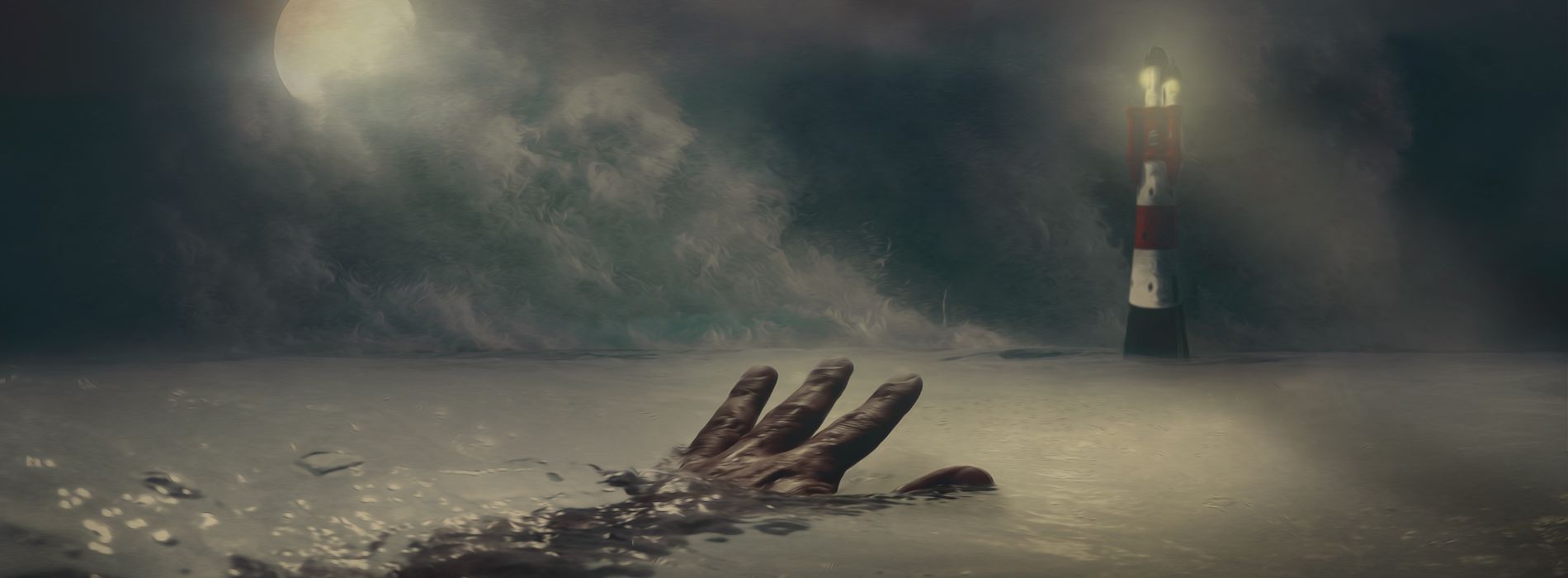Did Lighthouse Keepers Go Crazy?
Did Lighthouse Keepers Go Crazy?
The Isolation of Lighthouse Keepers
Life as a lighthouse keeper was often marked by solitude and isolation. Working in remote locations, far away from
civilization,
keepers had to endure long periods without human interaction. This seclusion, combined with the constant exposure to
harsh
weather conditions and the relentless sound of crashing waves, could take a toll on one's mental state.
The isolation experienced by lighthouse keepers made their occupation particularly challenging. They were responsible
for
the safety of maritime traffic, which required vigilance and dedication. This constant pressure, coupled with the
absence of
social connections and the monotony of daily routines, could eventually lead to feelings of loneliness, restlessness,
and
even psychological distress.
The Effects of Isolation
The effects of isolation on lighthouse keepers were varied. While some individuals thrived in the solitude, finding
solace
in the beauty of their surroundings, others struggled to cope with the long stretches of uninterrupted silence.
For those more susceptible to the negative impacts of isolation, common psychological issues such as depression,
anxiety,
and even hallucinations could arise. The constant exposure to the vast expanse of the sea and the absence of visual
stimuli
beyond the lighthouse itself could create a sense of detachment from reality.
While there have been anecdotal reports of lighthouse keepers exhibiting signs of mental instability, it is essential
to
note that these cannot be generalized to all individuals in this profession. Each person's resilience to isolation
differs,
and many keepers found ways to cope with their circumstances.
Strategies to Combat Isolation
To combat the potential negative effects of isolation, lighthouse keepers often employed various coping mechanisms.
Establishing daily routines, engaging in hobbies, and maintaining written communication with loved ones were common
strategies.
Furthermore, some lighthouse stations employed multiple keepers, fostering a sense of companionship and shared
responsibilities. This not only provided an opportunity for social interaction but also allowed for periodic breaks
from the
solitary nature of the work.
It is also worth noting that advancements in technology and communication have significantly reduced the isolation
faced
by lighthouse keepers in modern times. The introduction of automated systems and the ability to connect with the
outside
world via the internet have made the profession less isolating.
The Mystery and Myths
Throughout history, lighthouses and their keepers have been shrouded in mystery and surrounded by myths. Tales of
lighthouse
keepers going mad from prolonged periods of isolation have captured the collective imagination and become part of
maritime
folklore.
While there have been documented cases of lighthouse keepers experiencing mental health challenges, it is essential
not to
romanticize or exaggerate these incidents. It is crucial to rely on accurate historical records and personal
accounts to
separate fact from fiction.
Exploring the Myths
One well-known example is the story of the Flannan Isles lighthouse in Scotland, where three keepers vanished
without a
trace in 1900. Speculation and theories surrounding their disappearance abound, with some attributing it to madness
caused
by isolation. However, the truth remains unknown, and it is important to approach such stories with a rational and
critical
mindset.
While the allure of tales involving madness and isolation has captivated many, it is crucial to remember that these
stories are often sensationalized and may not reflect the reality faced by most lighthouse keepers.
It is important to appreciate the dedication and resilience of lighthouse keepers throughout history while
acknowledging
the challenges they faced. By recognizing the true narratives of their lives, we can gain a deeper understanding of
their
profession and the impact it had on their mental wellbeing.
Preserving the Legacy of Lighthouse Keepers
Despite the advancements in technology that have rendered many lighthouses obsolete, the legacy of lighthouse
keepers
continues to captivate and inspire. Their unwavering commitment to protecting seafarers and their dedication to
maintaining these beacons of light deserve recognition.
Today, lighthouses stand as symbols of strength, guiding ships through treacherous waters and reminding us of the
vital
role played by those who manned them. The stories of lighthouse keepers serve as a reminder of the human spirit and
the
courage it takes to face isolation.
Preserving History and Memory
Efforts are underway around the world to preserve lighthouses and their history. Many lighthouses have been
converted into
museums, allowing visitors to learn about the lives of the keepers and experience the unique atmosphere of these
iconic
structures.
By preserving the memory of lighthouse keepers, we can pay homage to their contributions and ensure that their
stories are
not forgotten. The dedication and sacrifices made by these individuals should be remembered and celebrated for
generations
to come.
So, next time you spot a lighthouse off in the distance or wear a piece of nautical jewelry inspired by these
magnificent
structures, take a moment to appreciate the history and the keepers who once stood watch, braving the elements in
the name
of safety and navigation.
The Conclusion
In summary, the isolation experienced by lighthouse keepers could indeed have adverse effects on their mental
well-being. While some individuals may have struggled with the solitude and experienced psychological distress,
it is important not to generalize such experiences to all lighthouse keepers.
Lighthouse keepers employed various strategies to combat isolation, and advancements in technology have made the
profession less isolating in modern times.
Furthermore, it is essential to approach stories and myths surrounding lighthouse keepers with a critical mindset
and rely on accurate historical records. By preserving the memory of these keepers, we can honor their legacy and
celebrate their contributions to maritime history.
Did Lighthouse Keepers Go Crazy?
The Isolation of Lighthouse Keepers
Life as a lighthouse keeper was often marked by solitude and isolation. Working in remote locations, far away from civilization, keepers had to endure long periods without human interaction. This seclusion, combined with the constant exposure to harsh weather conditions and the relentless sound of crashing waves, could take a toll on one's mental state.
The isolation experienced by lighthouse keepers made their occupation particularly challenging. They were responsible for the safety of maritime traffic, which required vigilance and dedication. This constant pressure, coupled with the absence of social connections and the monotony of daily routines, could eventually lead to feelings of loneliness, restlessness, and even psychological distress.
The Effects of Isolation
The effects of isolation on lighthouse keepers were varied. While some individuals thrived in the solitude, finding solace in the beauty of their surroundings, others struggled to cope with the long stretches of uninterrupted silence.
For those more susceptible to the negative impacts of isolation, common psychological issues such as depression, anxiety, and even hallucinations could arise. The constant exposure to the vast expanse of the sea and the absence of visual stimuli beyond the lighthouse itself could create a sense of detachment from reality.
While there have been anecdotal reports of lighthouse keepers exhibiting signs of mental instability, it is essential to note that these cannot be generalized to all individuals in this profession. Each person's resilience to isolation differs, and many keepers found ways to cope with their circumstances.
Strategies to Combat Isolation
To combat the potential negative effects of isolation, lighthouse keepers often employed various coping mechanisms. Establishing daily routines, engaging in hobbies, and maintaining written communication with loved ones were common strategies.
Furthermore, some lighthouse stations employed multiple keepers, fostering a sense of companionship and shared responsibilities. This not only provided an opportunity for social interaction but also allowed for periodic breaks from the solitary nature of the work.
It is also worth noting that advancements in technology and communication have significantly reduced the isolation faced by lighthouse keepers in modern times. The introduction of automated systems and the ability to connect with the outside world via the internet have made the profession less isolating.
The Mystery and Myths
Throughout history, lighthouses and their keepers have been shrouded in mystery and surrounded by myths. Tales of lighthouse keepers going mad from prolonged periods of isolation have captured the collective imagination and become part of maritime folklore.
While there have been documented cases of lighthouse keepers experiencing mental health challenges, it is essential not to romanticize or exaggerate these incidents. It is crucial to rely on accurate historical records and personal accounts to separate fact from fiction.
Exploring the Myths
One well-known example is the story of the Flannan Isles lighthouse in Scotland, where three keepers vanished without a trace in 1900. Speculation and theories surrounding their disappearance abound, with some attributing it to madness caused by isolation. However, the truth remains unknown, and it is important to approach such stories with a rational and critical mindset.
While the allure of tales involving madness and isolation has captivated many, it is crucial to remember that these stories are often sensationalized and may not reflect the reality faced by most lighthouse keepers.
It is important to appreciate the dedication and resilience of lighthouse keepers throughout history while acknowledging the challenges they faced. By recognizing the true narratives of their lives, we can gain a deeper understanding of their profession and the impact it had on their mental wellbeing.
Preserving the Legacy of Lighthouse Keepers
Despite the advancements in technology that have rendered many lighthouses obsolete, the legacy of lighthouse keepers continues to captivate and inspire. Their unwavering commitment to protecting seafarers and their dedication to maintaining these beacons of light deserve recognition.
Today, lighthouses stand as symbols of strength, guiding ships through treacherous waters and reminding us of the vital role played by those who manned them. The stories of lighthouse keepers serve as a reminder of the human spirit and the courage it takes to face isolation.
Preserving History and Memory
Efforts are underway around the world to preserve lighthouses and their history. Many lighthouses have been converted into museums, allowing visitors to learn about the lives of the keepers and experience the unique atmosphere of these iconic structures.
By preserving the memory of lighthouse keepers, we can pay homage to their contributions and ensure that their stories are not forgotten. The dedication and sacrifices made by these individuals should be remembered and celebrated for generations to come.
So, next time you spot a lighthouse off in the distance or wear a piece of nautical jewelry inspired by these magnificent structures, take a moment to appreciate the history and the keepers who once stood watch, braving the elements in the name of safety and navigation.
The Conclusion
In summary, the isolation experienced by lighthouse keepers could indeed have adverse effects on their mental well-being. While some individuals may have struggled with the solitude and experienced psychological distress, it is important not to generalize such experiences to all lighthouse keepers.
Lighthouse keepers employed various strategies to combat isolation, and advancements in technology have made the profession less isolating in modern times.
Furthermore, it is essential to approach stories and myths surrounding lighthouse keepers with a critical mindset and rely on accurate historical records. By preserving the memory of these keepers, we can honor their legacy and celebrate their contributions to maritime history.









































